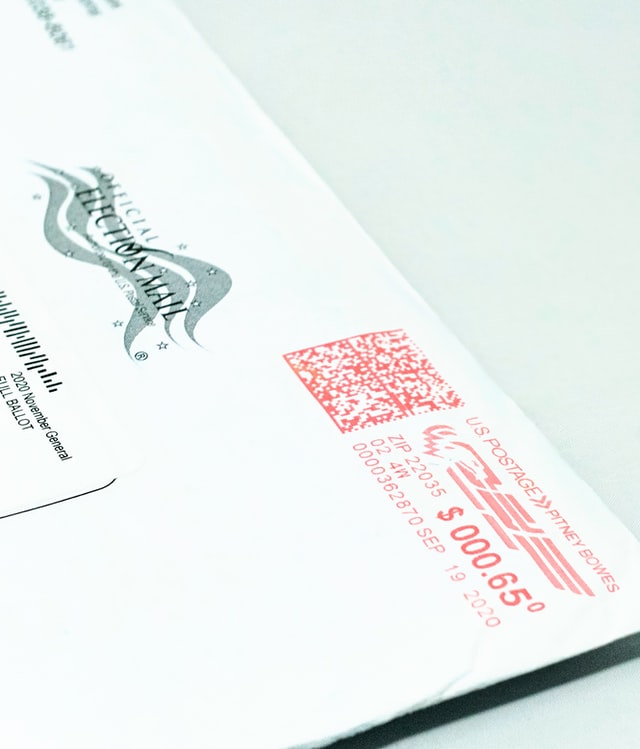
The Covid-19 pandemic is among the most consequential global events since World War II, affecting virtually every country in the world. In the US, the pandemic struck during a presidential election year, shifting the political narrative and President Trump’s re-election prospects. Prior to the pandemic, the US economy was performing well, and Trump, while extremely polarizing, enjoyed strong support among Republican and many independent voters. The virus changed the narrative, and Trump’s response to the crisis was widely criticized.
We explore the effect of the Covid-19 pandemic on the 2020 US presidential election. We ask whether and, if so, by how much Trump’s electoral support was reduced in localities hit harder by the pandemic.
Our analyses were guided by a pre-analysis plan. We estimate the effect of Covid-19 cases and deaths on the change in county-level voting for Donald Trump between 2016 and 2020. To account for potential confounders, we include a large number of Covid-19-related controls such as the share of young and old individuals, the county’s racial composition, remote work capacity, and mobility change during the pandemic. Moreover, we exploit the fact that the share of workers employed in meat-processing factories is highly correlated with Covid-19 cases per capita. This allows us to check whether Trump’s electoral support was lower in counties with a higher share of workers in that industry.
Exploring the effect of Covid-19 on election outcomes is challenging, since partisan identities can influence behavior in ways that may affect Covid-19 cases as well as support for Trump—as the partisan differences in attitudes toward the virus reveal. For instance, it is well known that Trump voters are more likely to have downplayed the severity of the pandemic and to have failed to comply with social-distancing and mask-wearing suggestions. Indeed, press analyses indicate a positive correlation between Covid-19 cases and Trump’s support. (See for instance, "Counties with worst virus surges overwhelmingly voted Trump").
We find that Covid-19 cases negatively affected Trump’s vote share in 2020 in comparison to 2016. A simple counterfactual analysis suggests that Trump would have won Arizona, Georgia, Pennsylvania, and Wisconsin, had there been 5% fewer Covid-19 cases. Under this counterfactual, Trump would have been re-elected.
Our conservative estimates suggest that a county with 100 more Covid-19 cases per 10,000 people (as compared to others in the same state) reduced its Trump vote share from 2016 to 2020 by an additional 0.13 percentage points on average. We also demonstrate that Trump’s electoral support was lower in counties with a higher share of workers in meat-processing factories. The estimated negative effect appears strongest in urban counties, in swing states, and in states that Trump won in 2016. We find no evidence that worsening economic conditions reduced electoral support for President Trump or that Covid-19 cases affected voters’ mobilization, measured as the number of votes cast in 2020 compared to 2016.
Our approach attempts to rectify the flaws of correlational analyses in order to identify the effect of Covid-19 on the 2020 US presidential election. Our study contributes to an ongoing debate in social science on whether voters electorally sanction politicians for their crisis responses. Our results show that, at least in the case of Covid-19 in the US, political leaders’ (mis-)handling of negative shocks matters to voters and elections.
© Leonardo Baccini, Abel Brodeur, and Stephen Weymouth
Leonardo Baccini is associate professor in the Political Science department at McGill University, Canada.
Abel Brodeur is associate professor of economics at the University of Ottawa, Canada, and an IZA Research Fellow.
Stephen Weymouth is an associate professor and the Dewey Awad Fellow at Georgetown University’s McDonough School of Business, USA.
Find more IZA World of Labor coronavirus content on our curated topics pages: National responses to Covid-19 and Covid-19—Pandemics and the labor market.
Please note:
We recognize that IZA World of Labor articles may prompt discussion and possibly controversy. Opinion pieces, such as the one above, capture ideas and debates concisely, and anchor them with real-world examples. Opinions stated here do not necessarily reflect those of the IZA.